What’s been happening in the possum elimination space?
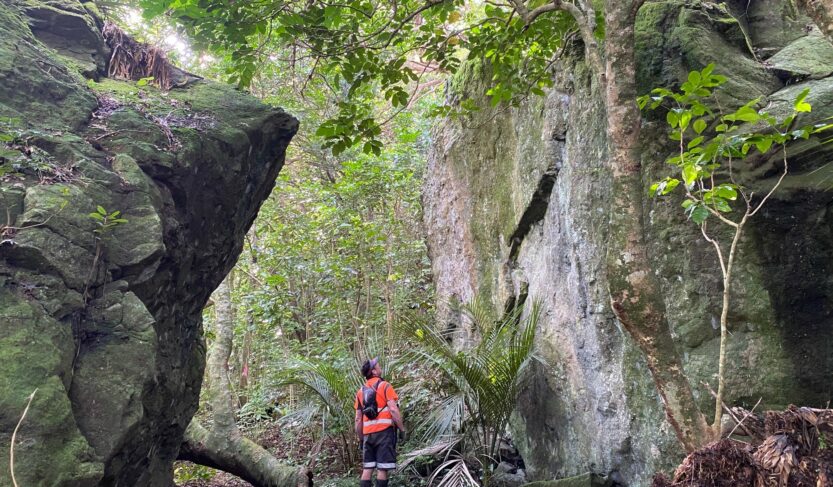
The 9,100+ ha possum elimination project in the Whangārei Heads has now been operationally active for almost 18 months – how is this progressing?
Moving upwards with a ‘rolling front’, the project has moved from Bream Head/Te Whara to Taurikura ridge, to Mt Aubrey/Reotahi, and now moving into McLeod Bay!
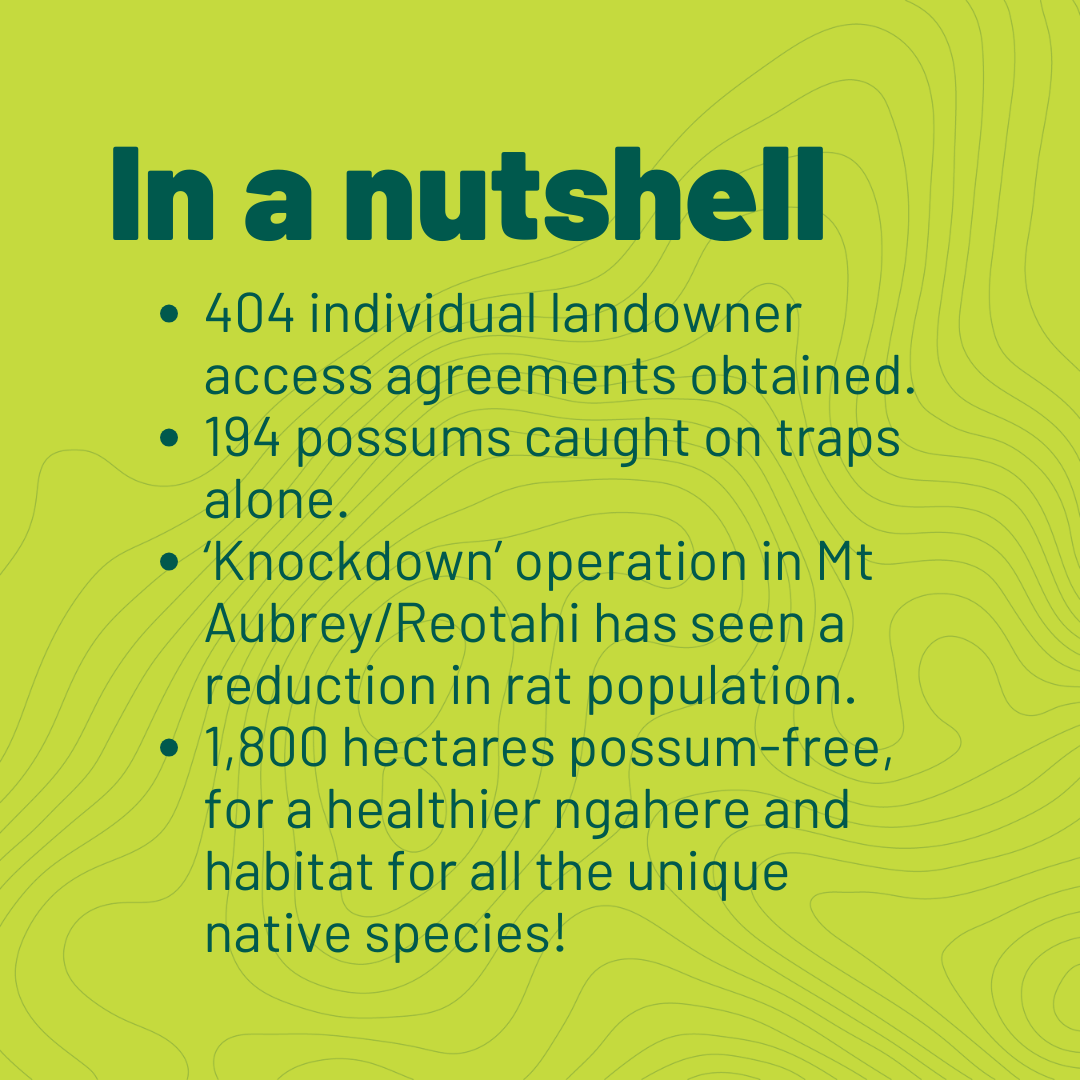
This project builds on the decades of existing community pest control, so some areas have started with already very low possum numbers. It is thanks to these groups that the project had a head start – Bream Head/Te Whara Conservation Trust, Ocean Beach Landcare, Urquharts Bay Landcare, Taurikura Ridge Landcare, landowners and community members too.
So far, almost 200 possums have been caught on traps alone from the possum elimination project and there are many more uncounted for in areas where toxins have been used. A wide range of possum traps have been used depending on the landowner’s circumstances and the physical terrain. For example, an AT220 self-resetting trap has been great for environments that are hard to reach, require less visits, or are outside of the more residential areas. Flipping Timmys and Sentinels have been great as the more traditional trap options.
Depending on the landowner’s approval bait has also been used and is the project’s preferred method as it is the most resource-efficient. Toxins also offers the benefit of targeting multiple species, not just possums! Some types of bait can also target stoats as they feed on the toxic carcasses, which is a particularly important species to target in kiwi country! Like traps, different types of bait are available and the ones appropriate for the various environments are used respectively.
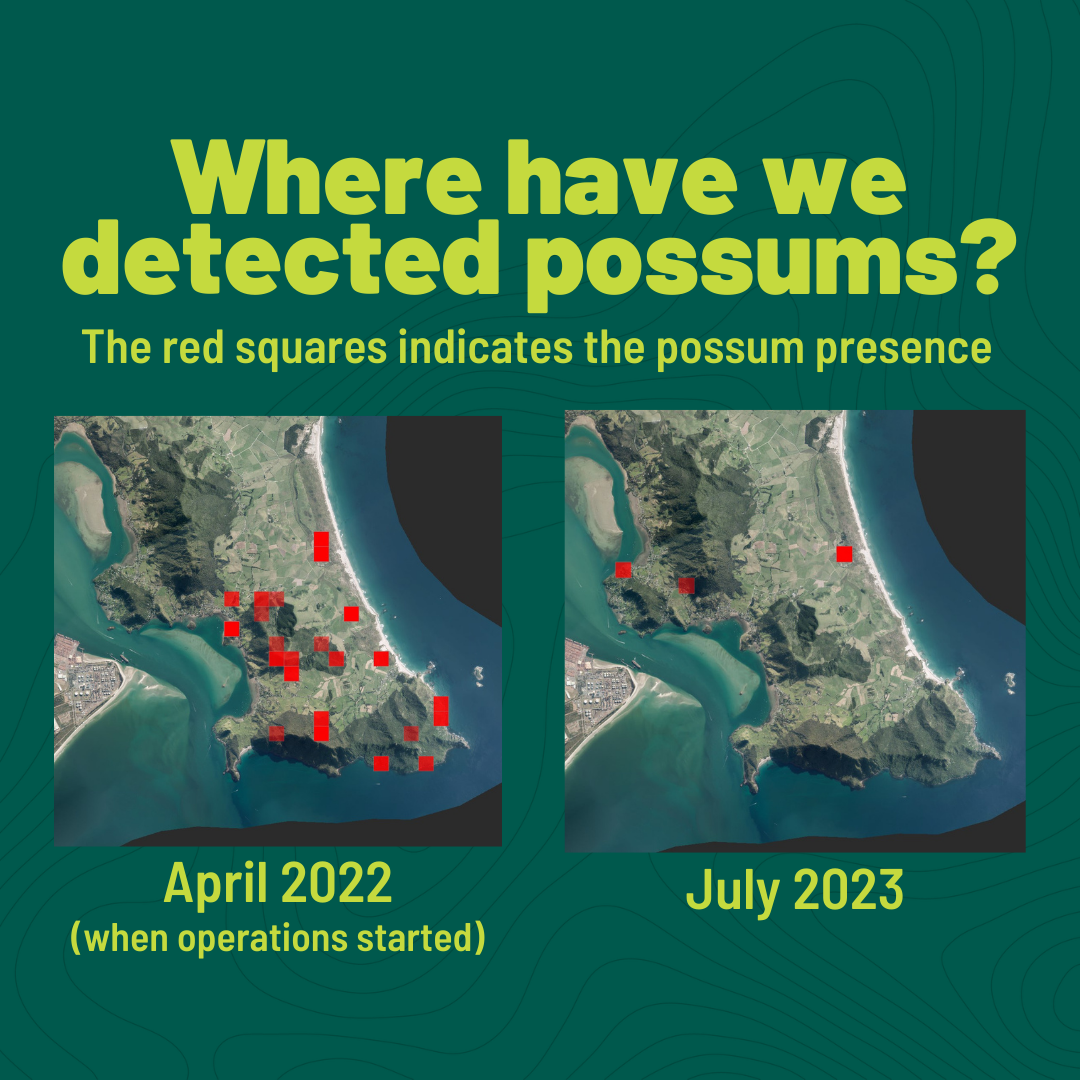
The project is now moving into its fourth working block, each operating in different phases.
There are three main phases in an elimination project. First phase is ‘knockdown’, where the objective is to remove the possums in the area. This means a device is placed every hectare to get the good coverage. Second phase is ‘mop up’, where you are trying to catch the lone possums. The frequency of device checks reduces, and operations then focus on specific devices in areas that lure out any remaining individuals. After the project is confident that the last ones have been caught, it moves into ‘detect and respond’ phase, where device numbers are reduced to one every 12.5 hectares – the ‘lean detection network’, ready to catch and quickly respond to any incursions.
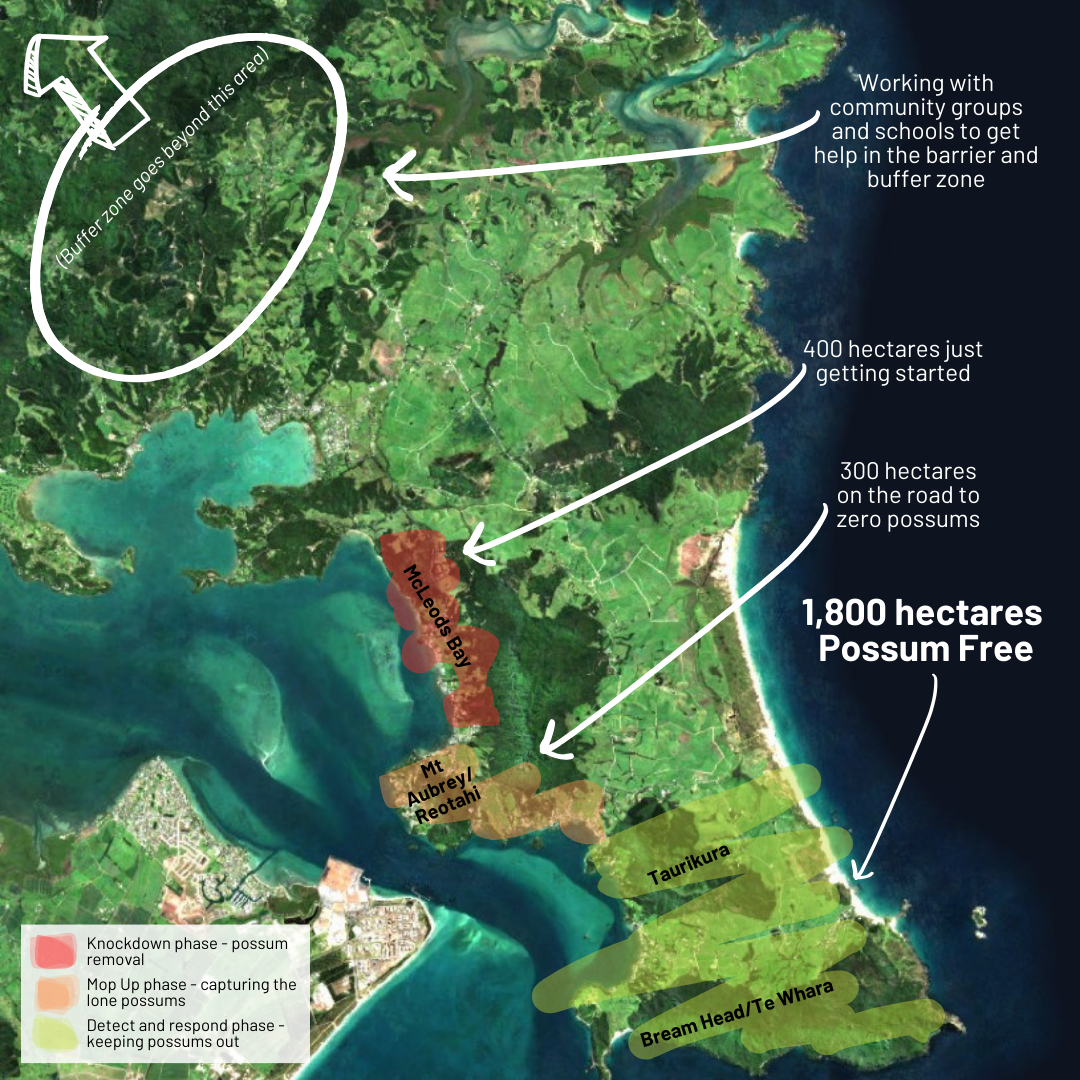
The first two blocks are now in ‘Detect and Respond’ phase and the project has been getting help from Bream Head/Te Whara Conservation Trust in the reserve area with the servicing of trail cameras. To prevent incursions a virtual barrier has been set to keep this area possum-free as the project moves forward. Other methods to keep this area possum free are being explored, such as the use of UAV thermal drones and certified possum indicator dogs.
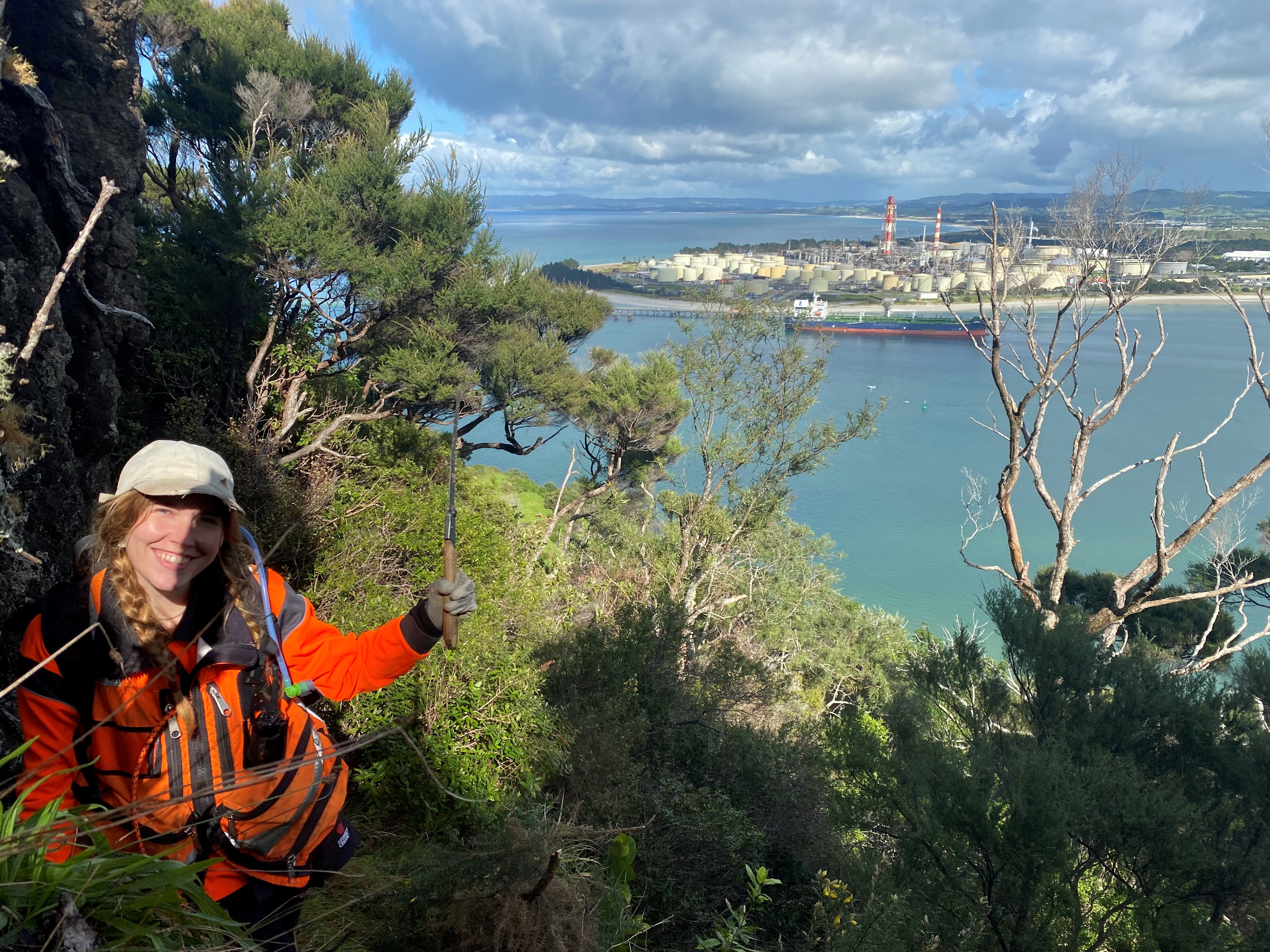 For the past three months, the team have been working in Reotahi, which has been a mixture of a residential village and a public reserve with steep clifftops. The team have been working on ‘knockdown’ and is now moving into ‘mop-up’ phase. Many locals have also noticed a reduction of rats in the area and it is likely that stoats have also been targeted due to the baiting operations in the maunga.
For the past three months, the team have been working in Reotahi, which has been a mixture of a residential village and a public reserve with steep clifftops. The team have been working on ‘knockdown’ and is now moving into ‘mop-up’ phase. Many locals have also noticed a reduction of rats in the area and it is likely that stoats have also been targeted due to the baiting operations in the maunga.
As the servicing intervals and amount of devices have reduced in Reotahi, the team are now able to move into the next area – McLeod Bay!
The field team have begun obtaining new landowner agreements – that is now 404 landowner agreements received, and still counting!
There has also been work underway in the project’s buffer/defend zone, working with various community groups that will help alleviate the pressure of possums moving into the elimination zone and help keep the area eventually possum-free.
The project would like to say thanks to all the landowners, schools, community groups that have supported the work so far.
September 6, 2023